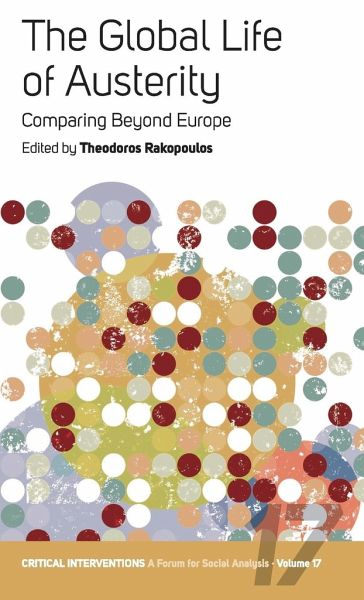
The Global Life of Austerity
Comparing Beyond Europe
Herausgeber: Rakopoulos, Theodoros

PAYBACK Punkte
9 °P sammeln!
Austerity and structural adjustment programs are just the latest forms of neoliberal policy to have a profoundly damaging impact on the targeted populations. Yet, as the contributors to this collection argue, the recent austerity-related European crisis is not a breach of erstwhile development schemes, but a continuation of economic policies. Using historical analysis and ethnographically-grounded research, this volume shows the similarities of the European conundrum with realities outside Europe, seeing austerity in a non-Eurocentric fashion. In doing so, it offers novel insights as to how ec...
Austerity and structural adjustment programs are just the latest forms of neoliberal policy to have a profoundly damaging impact on the targeted populations. Yet, as the contributors to this collection argue, the recent austerity-related European crisis is not a breach of erstwhile development schemes, but a continuation of economic policies. Using historical analysis and ethnographically-grounded research, this volume shows the similarities of the European conundrum with realities outside Europe, seeing austerity in a non-Eurocentric fashion. In doing so, it offers novel insights as to how economic crises are experienced at a global level.













